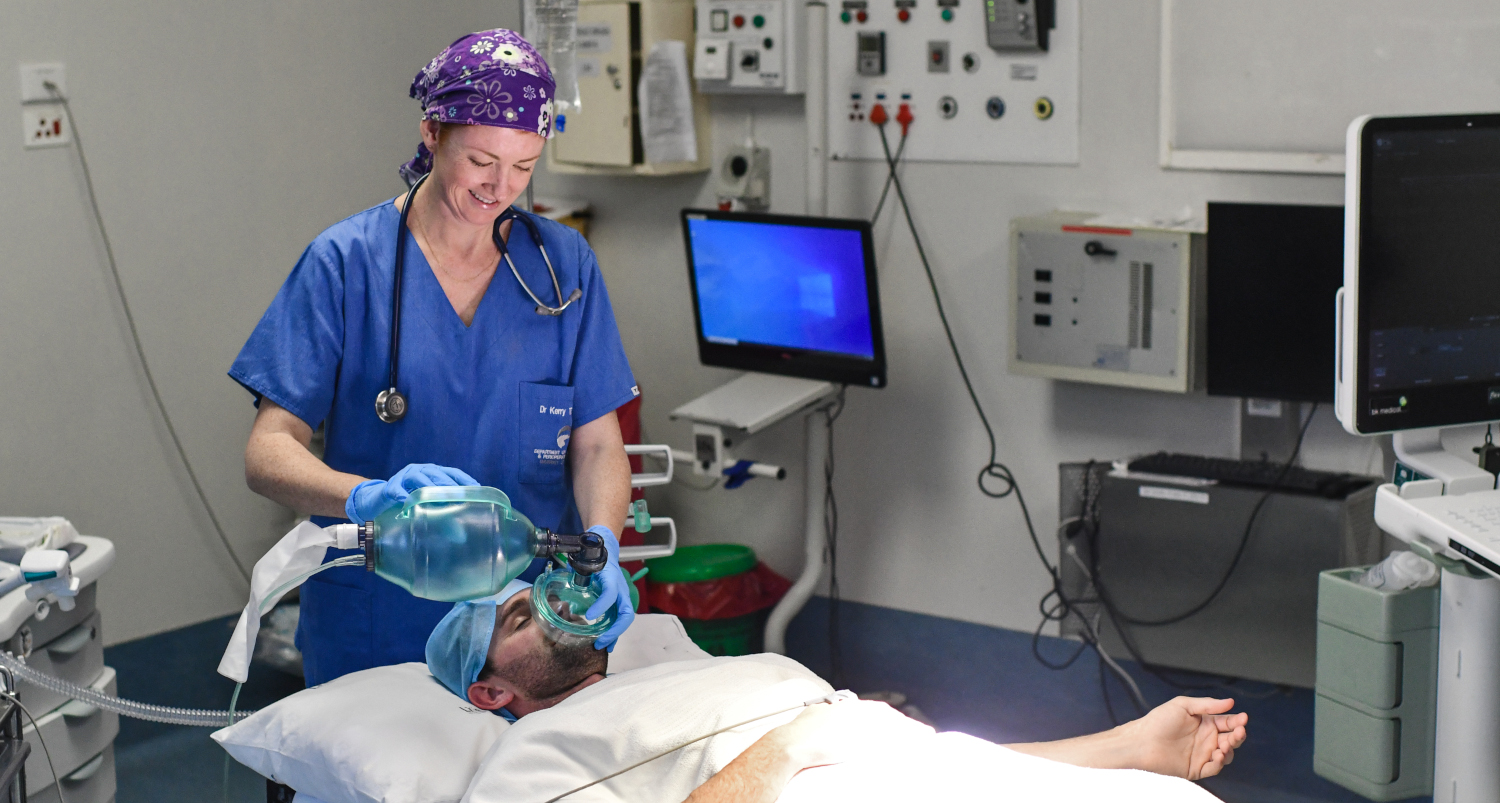Meet The Team
General Anaesthesia
This page explains general anesthesia, when it is used, how it is administered, how to prepare, and the potential risks and complications.
What Is General Anaesthesia?
General anaesthesia is a medically controlled state where you are completely unconscious and unable to feel pain during your procedure. It allows the surgical team to perform complex operations safely and effectively.
When Is General Anaesthesia Used?
Major Surgeries
Such as abdominal, orthopaedic, or cardiac operations.
Procedures that would otherwise cause significant pain or discomfort if you were awake.
Situations requiring muscle relaxation (e.g., joint or abdominal surgeries).
Operations involving areas of the body that cannot be effectively numbed using local or regional anaesthesia alone.
How Is General Anaesthesia Delivered?
Intravenous (IV) Medication:
Drugs are given through a drip in your arm, putting you to sleep quickly.
Inhalation of Anaesthetic Gases:
You may breathe anaesthetic gases through a mask or breathing tube to maintain unconsciousness.
Combination of Both:
Often, IV medication starts the anaesthesia, and inhalation gases maintain it.
Airway Management:
A breathing tube or mask is used to assist and protect your airway while you are asleep.
Preparing for General Anaesthesia
Fasting Guidelines
No Eating: Do not eat solid food for 6 hours before surgery.
Clear Liquids: You may drink water, clear apple juice, or weak black tea up to 2 hours before surgery. Avoid milk or juice with pulp.
For Babies and Infants: Fasting times vary depending on breast or bottle feeding. Please consult your anaesthetist for specific instructions.
Medical History and Medications
Provide Your Medical History: Complete the anaesthesia consent form and bring it to the hospital.
List Your Medications: Bring a complete list of all medications you are currently taking. Inform your anaesthetist if you use:
- Blood thinners (e.g., Aspirin, Warfarin, Plavix).
- Herbal, homeopathic, or alternative medications (ideally stop these 2 weeks before surgery).
- Recreational drugs, cigarettes, pipe tobacco, or alcohol.
Pregnancy and Breastfeeding: Inform your anaesthetist if you are pregnant or breastfeeding.
Health Concerns
Post-Surgery Transportation
Pain Management After Surgery
- Oral or intravenous pain relief medication.
- Regional anaesthesia or nerve blocks (if applicable).
- Other therapies to manage discomfort effectively.
You will receive detailed instructions on how to manage pain and discomfort at home.
Potential Risks and Complications
While general anaesthesia is very safe, complications can occasionally occur. Risks vary depending on individual health, the type of procedure, and other factors.
Common Complications (1-10% of cases)
• Nausea and vomiting.
• Sore throat.
• Shivering or feeling cold.
• Headache.
• Dizziness.
• Itching.
• Pain during injection of drugs.
• Swelling or bruising at the infusion site.
• Confusion or memory loss (more common in elderly patients).
Rare Complications (Less than 1 in 1,000 cases)
• Injuries to teeth, crowns, lips, tongue, and mouth.
• Hoarse voice or voice changes.
• Difficulty urinating.
• Visual disturbances.
• Worsening of underlying conditions (e.g., asthma, diabetes, heart disease).
Very Rare Complications (1 in 10,000 to 1 in 200,000 cases)
• Nerve injuries causing temporary or permanent paralysis.
• Eye injuries.
• Lung infections.
• Awareness during the operation.
• Bleeding or stroke.
• Allergic reactions or unexpected reactions to anaesthetic drugs.
• Inherited reactions to drugs (e.g., malignant hyperthermia, suxamethonium apnea, porphyria).
Extremely Rare and Serious Risks (Less than 1 in 250,000 cases)
• Heart attack.
• Emboli (blood clots).
• Severe lack of oxygen.
Your Safety Is Our Priority
Your anaesthetist will carefully assess your health, discuss your medical history, and tailor your anaesthetic plan to minimize risks. During surgery, your heart, lungs, and other vital signs are continuously monitored to ensure your safety.
If you have any questions about general anaesthesia, preparation, or pain management after surgery, please contact us. Our team is here to assist you every step of the way.
Your comfort and well-being are our top priorities.

